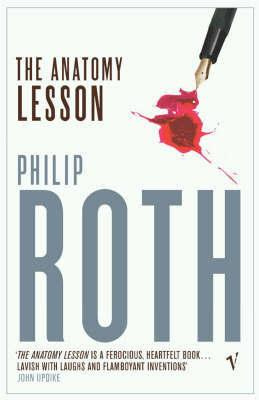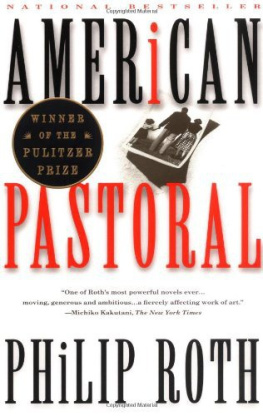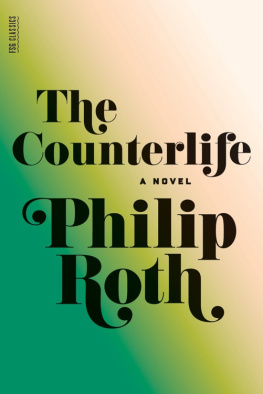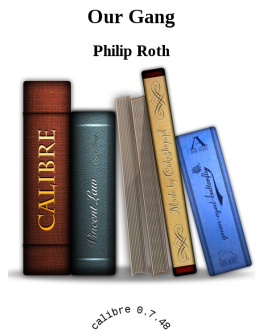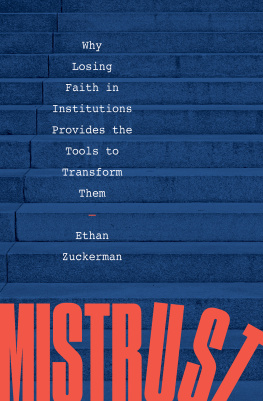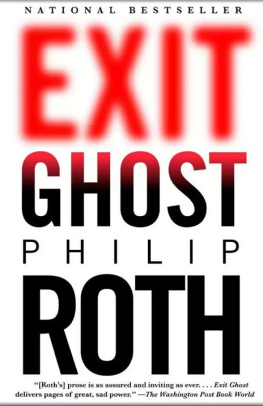The chie f obstacle to correct diagnosis in painful conditions is the f act that the s y mptom is often felt at a distance from its source.
JAMES CYRIAX, M.D.
> <
THE COLLAR
When he is sick, every man wants his mother; if she s not around, other women must do. Zuckerman was making do with four other women. He d never had so many women at one time, or so many doctors, or d runk so much vodka, or done so little work, or known despair of such wild proportions. Yet he didn t seem to have a disease that anybody could take seriously. Only the painin his neck, arms, shoulders, pain that made it difficult to walk for more than a few city blocks or even to stand very long in one place. Just having a neck, arms, and shoulders was like carrying another person around. Ten minutes out getting the groceries and he had to hurry home and lie down. Nor could he bring back more than one light bagful per trip, and even then he had to hold it cradled up against his chest like somebody eighty years old. Holding the bag down at his side only worsened the pain. It was painful to bend over and make his bed. To stand at the stove was painful, holding nothing heavier than a spatula and waiting for an egg to fry. He couldn t throw open a window, not one that required any strength. Consequently, it was the women who opened the windows for him: opened his windows, fried his egg, made his bed, shopped for his food, and effortlessly, manfully, toted home his bundles. One woman on her own could have done what was needed in an hour or two a day, but Zuckerman didn t have one woman any longer. That was how he came to have four.
To sit up in a chair and read he wore an orthopedic collar, a spongy lozenge in a white ribbed sleeve that he fastened around his neck to keep the cervical vertebrae aligned and to prevent him from turning his head unsupported. The support and the restriction of movement were supposed to diminish the hot tine of pain that ran from behind his right ear into his neck, then branched downward beneath the scapula like a menorah held bottom side up. Sometimes the collar helped, sometimes not. but just wearing it was as maddening as the pain itself. He couldn t concentrate on anything other than himself in his collar. The text in hand was from his college days. The Oxford Book of Seventeenth Century Verse. Inside the front cover, above his name and the date inscribed in blue ink, was a single penciled notation in his 1949 script, a freshman apercu that read, Metaphysical poets pass easily from trivial to sublime. For the first time in twenty-four years he turned to the poems of George Herbert, He d got the book down to read The Collar, hoping to find something there to help him wear his own. That was commonly believed to be a function of great literature: antidote to suffering through depict ion of our common fate. As Zuck erman was learning, pain could make you awfully primitive if not counteracted by steady, regular doses of philosophical thinking. Maybe he could pick up some hints from Herbert.
Shall I be still in suit?
Have I no harvest but a t horn
To let me blood, and no t restore
What I have lost with cordiall fruit?
Sure there was wine
Before my sighs did drie i t : there was corn
Before my tears did drown it.
I s the yeare only l ost to me ?
Have I no bayes to crown i t ?
No flowers, no garlands gay? all blasted?
All wasted?
But as I rav d and grew more fierce and wilde
At every word
Me thought I heard one calling. Childe: And I reply d. My Lord.
As best he could with his aching arm, he threw the volume across the room. Absolutely not! He refused to make of his collar, or of the affliction it was designed to assuage, a metaphor for anything grandiose. Metaphys ical poets may pass easily from trivial to sublime, but on the strength of the experience of the past eighteen months, Zuckerman s impression was of proceeding, if at all, in the opposite direction.
Writing the last page of a book was as close as he d ever come to sublimity, and that hadn t happened in four years. He couldn t remember when he d written a readable page. Even while he was wearing the collar, the spasm in the upper trapezius and the aching soreness to either side of the dorsal spine made it difficult to type just the address on an envelope. When a Mount Sinai orthopedist had ascribed his troubles to twenty years of hammering away at a manual portable, he at once went off to buy an IBM Selectric II; however, when he tried at home to get to work, he found that he ached as much over the new, unfamiliar IBM keyboard as he had over the last of his little Olivettis. Just a glimpse of the Olivetti stowed away in its battered traveling case at the back of his bedroom closet and the depression came rolling inthe way Bojangles Robinson must have felt looking at his old dancing shoes. How simple, back when he was still healthy, to give it a shove and make room on his desk for his lunch or his notes or his reading or his mail. How he d loved to push them around, those silent uncomplaining sparring partnersthe pounding he d been giving them since he was twenty! There when he paid his alimony and answered his fans, there to lay his head beside when overcome by the beauty or ugliness of what he d just composed, there for every page of every draft of the four published novels, of the three buried aliveif Olivettis could talk, you d get the novelist naked. While from the IBM prescribed by the first orthopedist, you d get nothingonly the smug, puritanical, workmanlike hum telling of itself and all its virtues: I am a Correcting Selectric II. I never do anything wrong, Who this man is I have no idea. And from the look of things neither does he.
Writing manually was no better. Even in the good old days, pushing his left hand across the paper, he looked like some brave determined soul learning to use an artificial limb. Nor were the results that easy to decipher. Writing by hand was the clumsiest thing he did. He danced the rumba better than he wrote by hand. He held the pen too tight. He clenched his teeth and made agonized faces. He stuck his elbow out from his side as though beginning the breast stroke, then hooked his hand down and around from his forearm so as to form the letters from above rather than belowthe contor tionist technique by which many a left-handed child had taught himself how not to smear his words as he proceeded across the page from left to right back in the era of the inkwell. A highly recommended osteopath had even concluded that the cause of Zuckerman s problems was just this: the earnest left-handed schoolboy, straining to overcome the impediment of wet ink, who had begun microscopically to twist the writer s spine off the vertical axis and screw it down cockeyed into his sacrum. His rib cage was askew. His clavicle was crooked. His left scapula winged out at its lower angle like a chicken s. Even his humerus was too tightly packed into the shoulder capsule and inserted in the joint on the bias. Though to the untrained eye he might appear more or less symmetrical and decently proportioned, within he was as misshapen as Richard III. According to the osteopath, he d been warping at a steady rate since he was seven. Began with his homework. Began with the first of his reports on life in New Jersey. In 1666 Governor Carteret provided an interpreter for Robert Treat and also a guide up the Hackensack River to meet with a representative of Oraton, the aged chief of the Hackensacks. Robert Treat wanted Oraton to know that the white settlers wished only peace. Began at ten with Newark s Robert Treat and the euphonious elegance of interpreter and representative, ended with Newark s Gilbert Car novsky and the blunt monosyllables cock and cunt, Such was the Hackensack up which the writer had paddled, only to dock at the port of pain.

